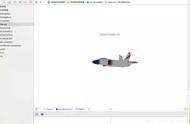常用方式介词辨析(文末赠送限时免费中考介词短语考点图)
一、表示交通方式的 by,in 与 on。
(1)“by 交通工具”,交通工具前不用任何修饰词。
By ship乘船 by plane 乘飞机
(2) “on/in .. 交通工具”,交通工具前要用修饰词。
在封闭型交通工具用in;
在开放型或半开放型交通工具前用 on。
In a car乘小汽车 on my bike 骑我的自行车
二、表示“用”的 in, with 与 by。
(1) in 表示使用某种语言、原料或者表示衣着、声调的特点等。
Can you say your name in English? 你能用英语说你的名字吗?
备注:say表示说某事,强调说话的内容;
speak指讲某种语言,如:speak English/Chinese
(2)with 表示用具体有形的东西。 →指具体的工具或身体的某个器官。
I draw the picture with a color pen. 我用彩笔画的这幅画。
(3)by表示用某种手段或方法。后接名词时,名词前不加冠词;后接动词时,需将动词变为动名词形式。
This pair of shoes is made by hand.这双鞋是手工做的。
>谓语动词跟This pair一致,用单三形式。
The girl made money by selling flowers.这个女孩靠卖花赚钱。
三、表示“除……之外”的 but, except 与 besides。
(1)but 意为“除……之外”,常与表示否定意义的词连用,而且当but前有动词 do 或 do 的其他形式时,but 后接动词原形。
They could not do anything about it but wait.他们除了等待,什么也做不了。
注:“别无选择只好做某事”的英语表达:
can do nothing but do; can't help but do;
can't choose but do; can't but do;
have no choice but to do;
(2)except 意为“除……之外”,表示排除 except 后接的人或事物,即不包含 后边的人或物,侧重于同类事物的排除。
We all went to the Great Wall except Li Ming.
除了李明,我们都去了长城。(表示:李明没有去)
(3)besides 意为“除……外还有……”,指在原来的基础上加上除外的人或事物(包括后边的人或物在内),其前常有other,another,anyother,a few 等词。
The other people went to the Great Wall besides Li Ming.
除了李明其他人也去了长城。(表示:李明也去了)
四、instead of 与 instead 的区别。
instead of 意为“代替”,后面接名词、代词或动名词;
而 instead 是副词,意为“代替,顶替”,在句子中作状语,后面不能接任何成分。
He will go instead of me. 他将代替我去。介词后用代词的宾格形式
She went to school instead of staying at home. 她没有待在家里而是去上学了。
Give me this instead. 换这个给我吧。
五、across,past,through与 over的区别。
across 与 past 均可表示“从这一边到另一边”,但用法不同:
across 的含义与on 有关,表示动作是在某一物体的表面进行的;
常用搭配go across the street/river/grass/mount
past从……旁边经过,路过:
past是介词 经过pass是动词→过去式passed。
through的含义与in 有关,表示从某一物体的内部穿过。
go through the door/building/window/hole/city/forest 从门/楼/窗户/洞/城市/森林中通过
over 意为“遍及;超过;从……上面越过”。
The dog ran across the grass. 这只狗跑过草地。
I often go past a bank when I go to work. 当我上班时,我经常要路过一个银行。
=本句换为:I often pass a bank when I go to work.
They walked through the forest. 他们步行穿过森林。
My friends are over the world. 我的朋友遍天下。
There are over two hundred people in the park. 公园里有两百多人。
The horse jumped over the fence. 马跳过栅栏。
六、在由 this, that, these, next, last 等组成的时间状语前不用介词。
We are in Grade Two this year. 今年我们上二年级。
Tom's trouble is very common to boys these days.
近来汤姆的问题在男孩们中间很常见。
The next day she got up early and went to school without breakfast.
第二天她起得很早,并且没吃早饭就去上学了。
without eating breakfast
without doing sth.没有做某事,介词后跟动词-ing形式
When did you go to bed last night? 你昨晚几点上床睡觉的?
七、当 yesterday,tomorrow 用作副词或构成短语时前面不用介词。
Can you be here at eight tomorrow morning? 你明早八点能在这里吗?
Were you at home yesterday evening? 你昨晚在家吗?
八、其他常见介词的用法
1、against 意为“反对;对抗;靠着,倚着”。
We will play against them this afternoon.今天下午我们要跟他们比赛。
The boy stood against the wall, looking very sad.男孩靠墙站着,看上去很悲伤。
2、from 意为“从……”。
We go to school from Monday to Friday.我们从星期一到星期五上学。
3、during 的用法。
during十时间段,与延续性的动词连用,表示在这一段时间内。
He lives with us during these years.这些年他跟我们生活在一起。
4、with的用法
(1)有,带有,表示附有
she is a beautiful girl with blue eyes.她是一个有着蓝色眼睛的漂亮女孩.
(2)表示伴随
Are you going to the park with us? 你打算和我们一起去公园吗?
(3)表示原因。
My mother is in bed with a bad cold.我母亲得了重感冒,卧病在床。
(4)对于,关于。
Everything is going well with me.对我来说,一切都顺利。
with与in的用法区别:
with长着;带有
with a big nose 长着一个大鼻子
a house with a garden 一所带有花园的房子
in指穿什么颜色的衣服
The girl in red(穿红色衣服的女孩)is my sister.
The boy in a blue jacket(穿蓝色夹克衫的男孩)is my brother.
5、for 意为“为,给”。
Mother bought a pen for me.妈妈给我买了一支钢笔。
for的常见用法:
make... for sb为某人制作某物
buy... for sb.为某人买某物
do... for sb.为某人做某事
6、of意为“属于,关于”。
a map of China 一幅中国地图
[注意] 表示“对于某人”的 of Sb.与 for Sb.辨析
①of Sb.常用于“It is adj. of sb. to do sth.”句型中,意为“某人做某事真是太…了”形容词为 clever,kind,nice 等描述人物性格特征的词,of 后的人物与形容词有主表关系。
It's so kind of you to help me with my English. 你帮助我学习英语,真是太好了。
②for sb.常用于“It is adj. for sb. to do sth.”句型中,意为“做某事对某人来说是……的”。形容词为 easy,important,necessary等不能描述人物性格特征的词而是指“做某事”是……的,for 后的人物与形容词没有主表关系。
It's very important for us to master a foreign language.
掌握一门外语对我们来说是非常重要的。
>用to不用of的情况
the way to the park
the answer to the question
the secret to
the key to
7、without 意为“没有”
without n. 或者 without doing ......表示没有做某事。
He often goes to work without breakfast.他经常不吃早餐就去上班。
We will have a party for her without telling her because it's a surprise party.
我们将为她举办一个晚会,事先不告诉她因为它是一个惊喜晚会。
without doubt 毫无疑问 without difficulty毫不费力
8、to意为“给,对,到,往”。
give a kite to me 把风筝给我; go to school 去上学。
from here to the park 从这里到公园;


















